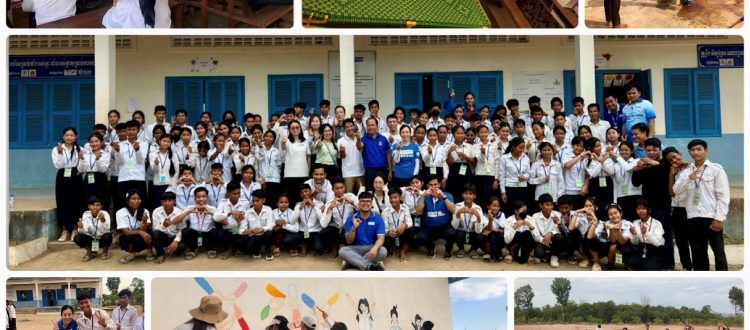A Journey of Impact Beyond Donations: Sponsor Group Visit to Cambodia 2024
In the north-eastern reaches of Cambodia lies Ratanakiri, a province whose name in Khmer translates to ‘gem’ and ‘mountain’. Despite its past troubles with political turmoil that dimmed its beauty, today, 82% of its families subsist on agriculture. In March this year, Plan International Hong Kong’s donors embarked on a journey to Ratanakiri, engaging wholeheartedly with the community and experiencing the significance of visiting the sponsored areas in person.
As one of the participating donors, Ar Wai, reflected, “I was delighted to interact with the children and convey a message of hope: despite being born in a rural village or in poverty, never give up on your dreams. There are many people from Hong Kong, a place which you may not be familiar with, who care about you.”
Over 42% of Ratanakiri’s population are children under the age of 18, and 60% belong to minority groups, often living in poverty. Since 2011, Plan International has been implementing child-centric community development programmes in the province that cover more than half of its 243 villages.
Nurturing Potential: How Global Donors Are Reshaping Education in Ratanakiri

A highlight of our trip was visiting a junior secondary school constructed with the support of Plan International’s donors from around the globe. Equipped with teaching facilities, separate toilets for boys and girls, water supply facilities, sports fields, and more. Plan International also provides teaching training and support as well as financial support to families of students at risk of dropping out. We planted trees and painted murals with the students, and also played collective games like ‘Drop the Handkerchief’. The Khmer words on the mural translate to ‘bravery, strength, and commitment’.
In one corner of the principal’s office, a dedicated ‘Youth Counselling Room’ offers support for students facing sexual and reproductive health issues, with a space for girls to rest during menstrual discomfort. Unfortunately, the school currently lacks female staff, relying on trained female student council members for peer support.
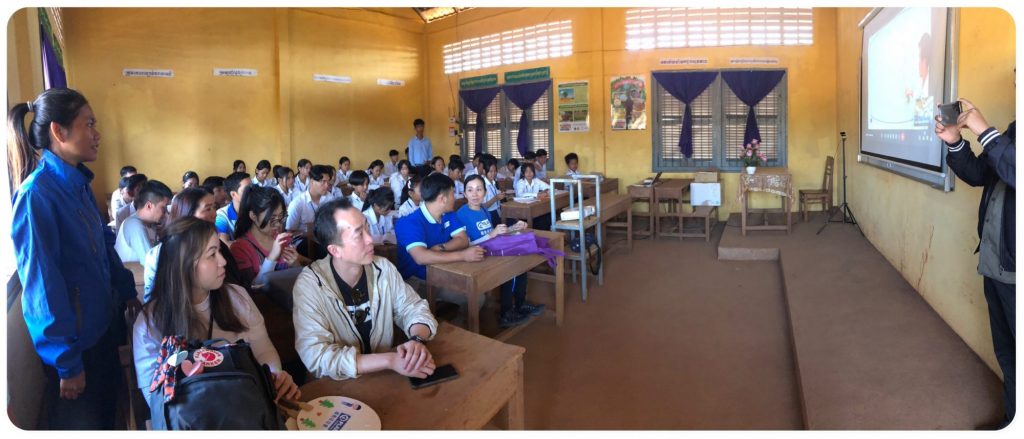
Indeed, both male and female teachers are scarce in rural areas. Thanks to Plan International’s funding, 10 secondary schools across the province, including this one, leverage online classes taught by some of the nation’s top-ranked teachers, ensuring quality education despite ongoing technical challenges. During our visit to another supported school, network instability interrupted the lesson, prompting one of our generous donors to offer his expertise to improve connectivity and teaching efficiency.
From Awareness to Action: Tackling the Surge in Child Marriage During the Pandemic
The rate of child marriage in Ratanakiri is among the highest in the country, with the local tradition considering marriage beyond the age of 20 to be late. School closures during the COVID-19 pandemic further increased the child marriage rate, with the youngest bride being just 12 years old.
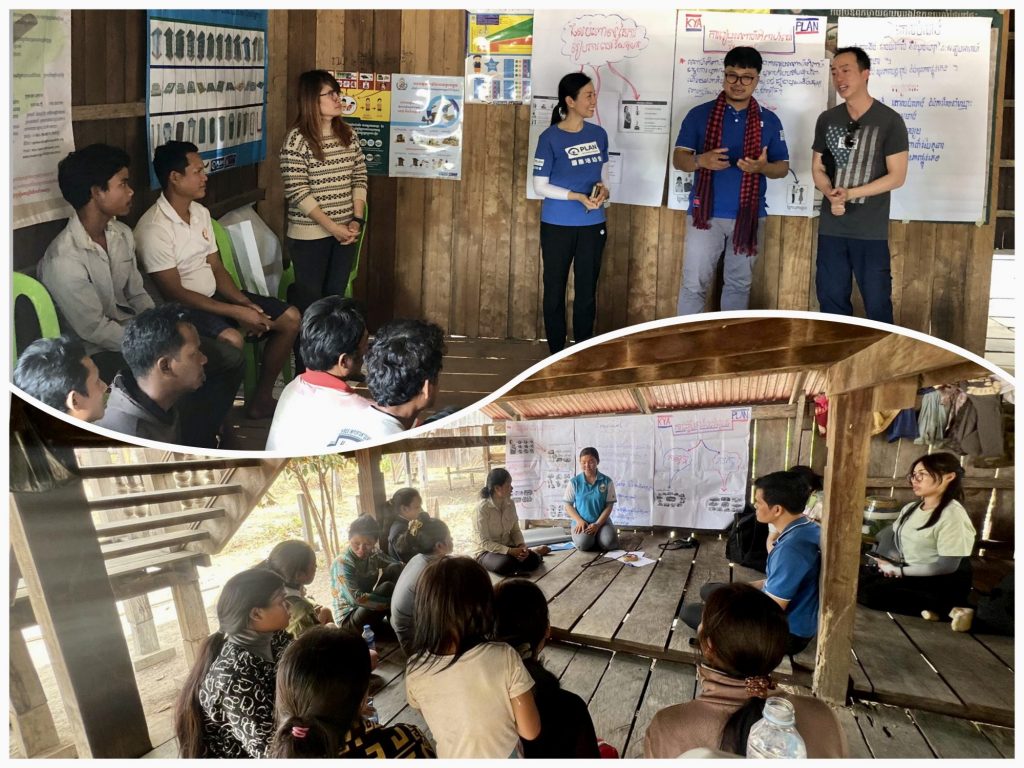
We visited a minority community to learn about Plan International’s advocacy efforts against child marriage through its local partners. It was heartening to see many fathers actively engaging in candid conversations, sharing their experiences of child marriage and their determination to prevent their children from following the same path. Challenges raised by local parents resonated with those from Hong Kong: protecting children from premature romantic relationships and the use of social media. Furthermore, Kanie Siu, CEO of Plan Hong Kong, and donor Thomas shared through an interpreter their personal stories of how ‘education changes fate’, urging parents to allow their children to continue their education and to say ‘no’ to child marriage.
For young people who are already married and have children, Plan Internatioanl also conducts workshops for young mothers on contraception, nutrition, vaccination, child-rearing, and emphasises the importance of education.
“Skills to Success”: Empowering Out-of-School Youth through Vocational Training for a Brighter Future
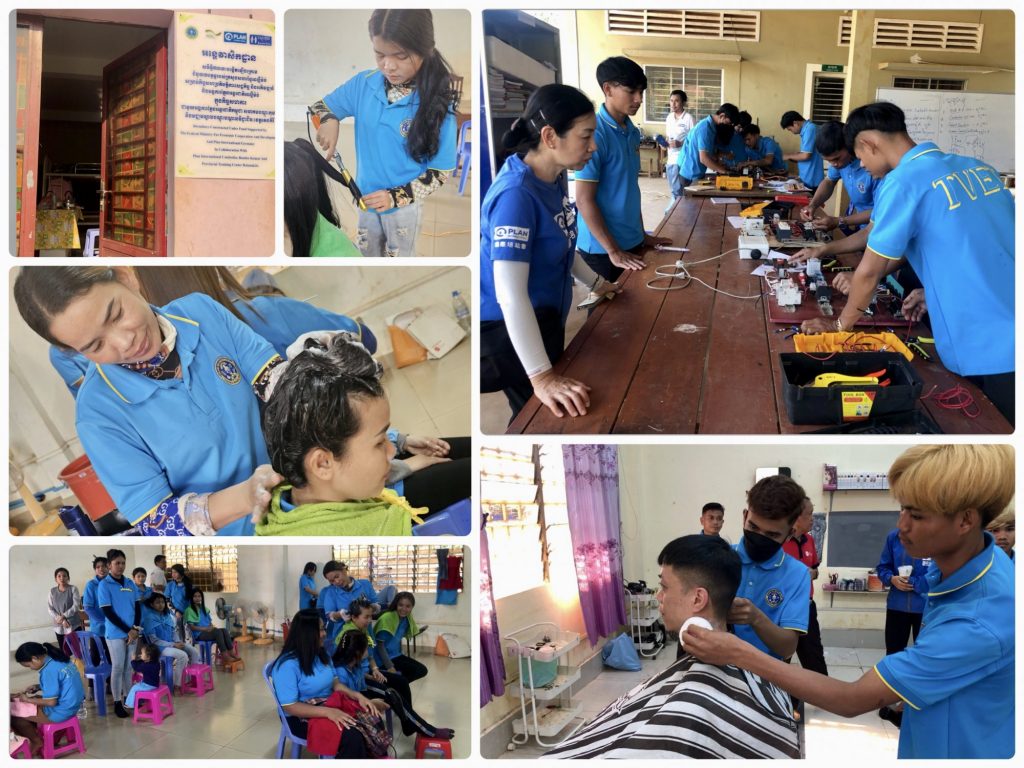
Plan International’s “Skills to Success” programme has assisted more than 300 drop-out, impoverished, and ethnic minority youths, including over 100 young women, to master a trade. On our visit to a government-run vocational training centre supported by Plan International, we saw students receiving free full-time courses lasting four months in beautician skills, hairdressing, electrical work, computing and graphic design. Plan International not only funds the establishment of dormitories for trainees, but also refers suitable youths, especially girls, for training. Those in need can receive stipends and other financial support, with the prospects of obtaining start-up capital and tools for their trade upon graduation. During our visit, one of the donors graciously invited the trainees, who had been training for two months, to cut his hair, providing a valuable opportunity to practice their skills.
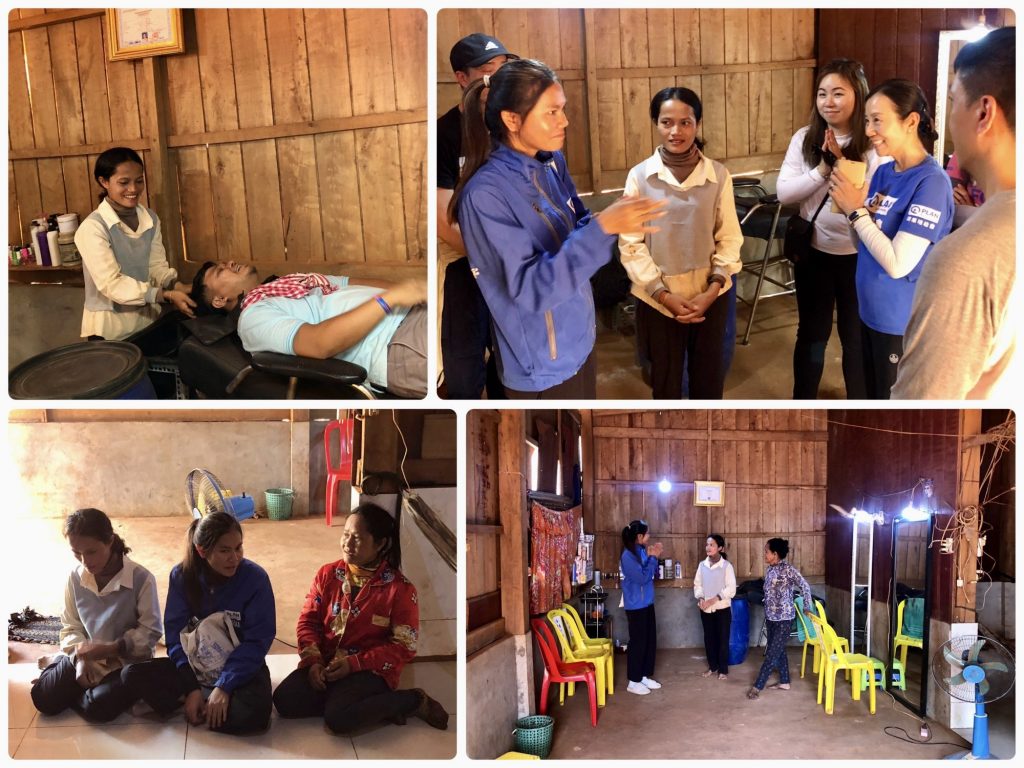
More than two years ago, Pally, a young woman from an ethnic minority, learned not just hairstyling, make-up and nail art, but also business and financial management skills as well as essential knowledge about sexual and reproductive health and rights at the vocational centre. After graduating, she returned to her hometown to open her beauty shop, increasing her income by 50% compared to farming. We truly admire Pally’s courage to pursue her dreams and offer suggestions, such as interning in the city during the business off-season to enhance her skills and stay up-to-date with market trends.
Quenching Thirst for Progress: Bringing Clean Water and Sanitation Facilities to Communities
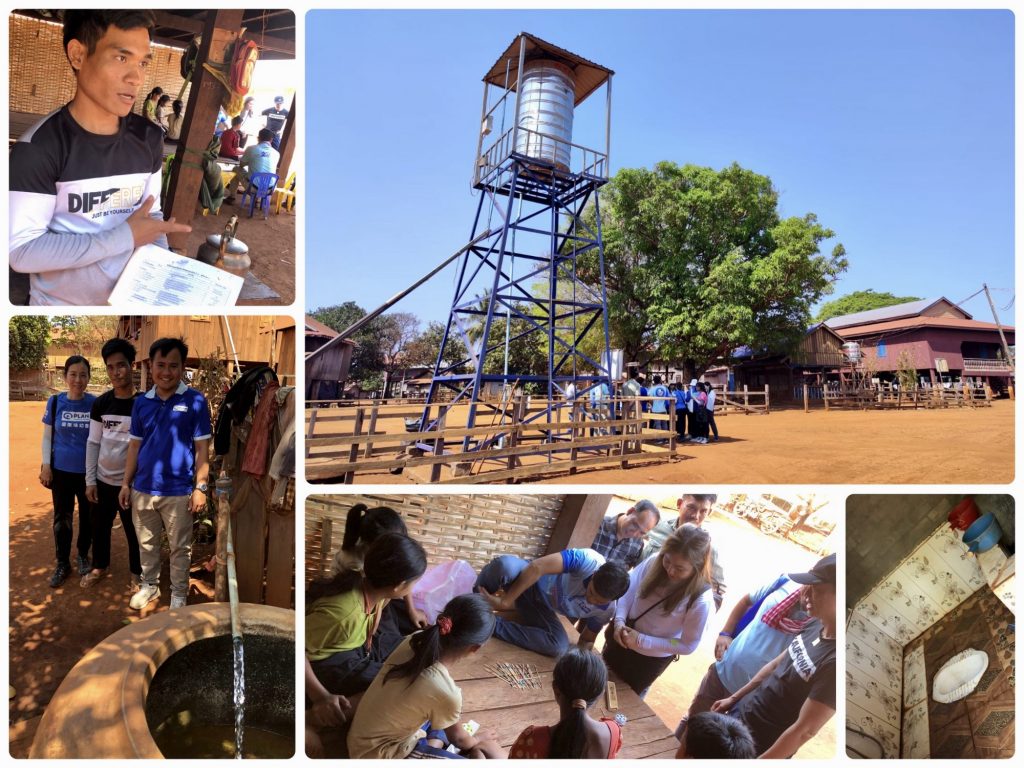
We visited a village where every household has a clean water supply now. In 2018, Plan International funded the installation of a water supply system, extracting groundwater to provide water for 70 households in the village, each equipped with an individual tap and water meter. This setup allows families to pay for water based on usage, saving the hardship of assessing a water source about one kilometre away. Many children in the village, who are sponsored children, no longer have their schooling disrupted by the need to collect water.
Meet Sanchantha, a community volunteer with Plan International, who assists sponsored children (including his 7-year-old son) in writing letters and taking photos for their donors. He is also responsible for managing the village’s water fee, with surplus funds set aside for maintaining the proper functioning of the water system and other village development purposes. He is grateful to our donors for greatly improving the lives of the children and families in the village.
More Snapshots from Our Visit…
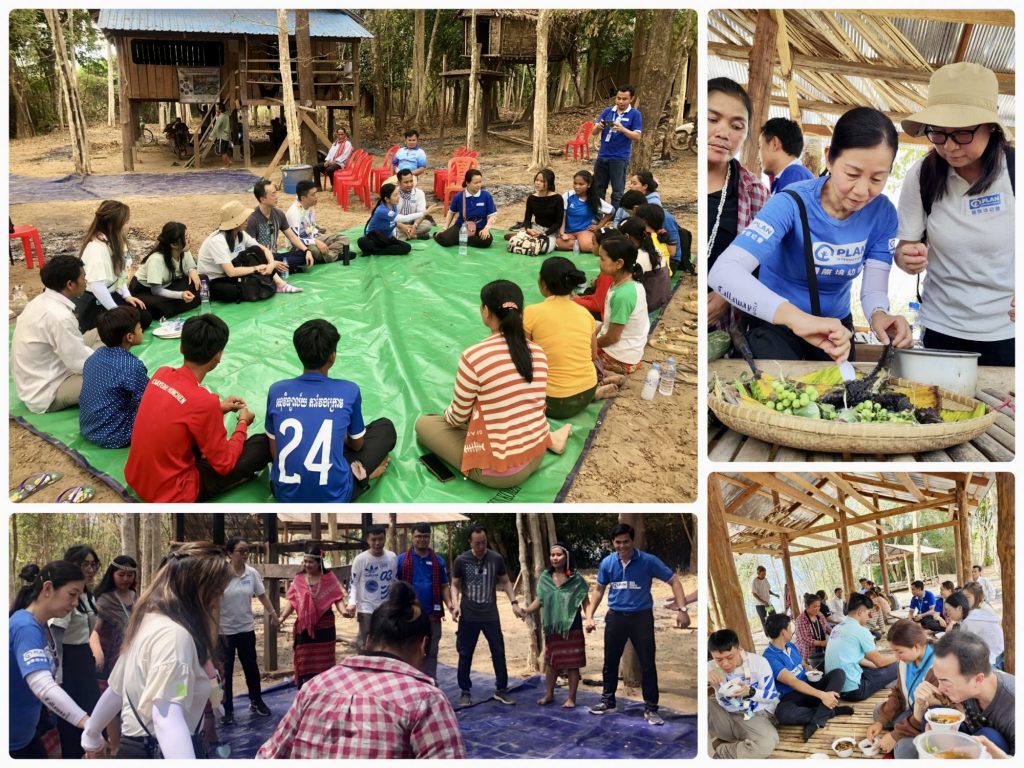
A minority community welcomed us with traditional dances and meals, inviting us to sit on the ground next to the sponsored children, the former sponsored children who have graduated, and their parents to share their experiences and future goals after participating in Plan International’s Child Sponsorship Programme.
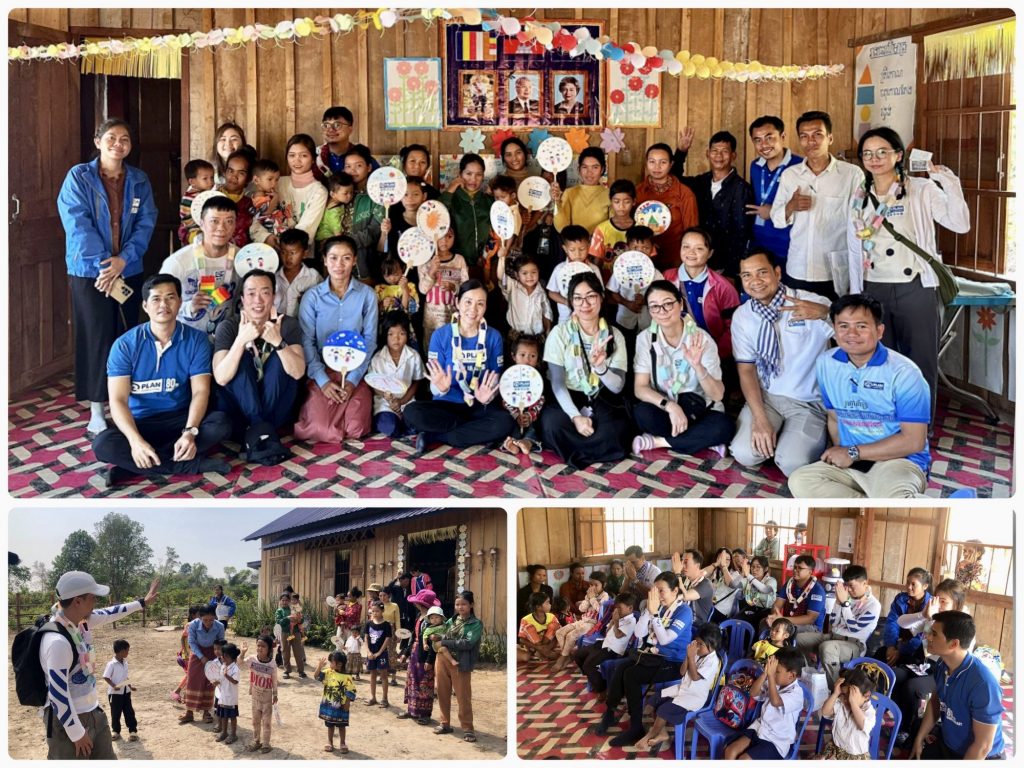
We visited a kindergarten supported by Plan International, where we learned different ways of greeting friends, elders, and teachers with the children. The paper fans hand-painted by children in Hong Kong at the donors’ annual gathering last December, were given to children in Cambodia!
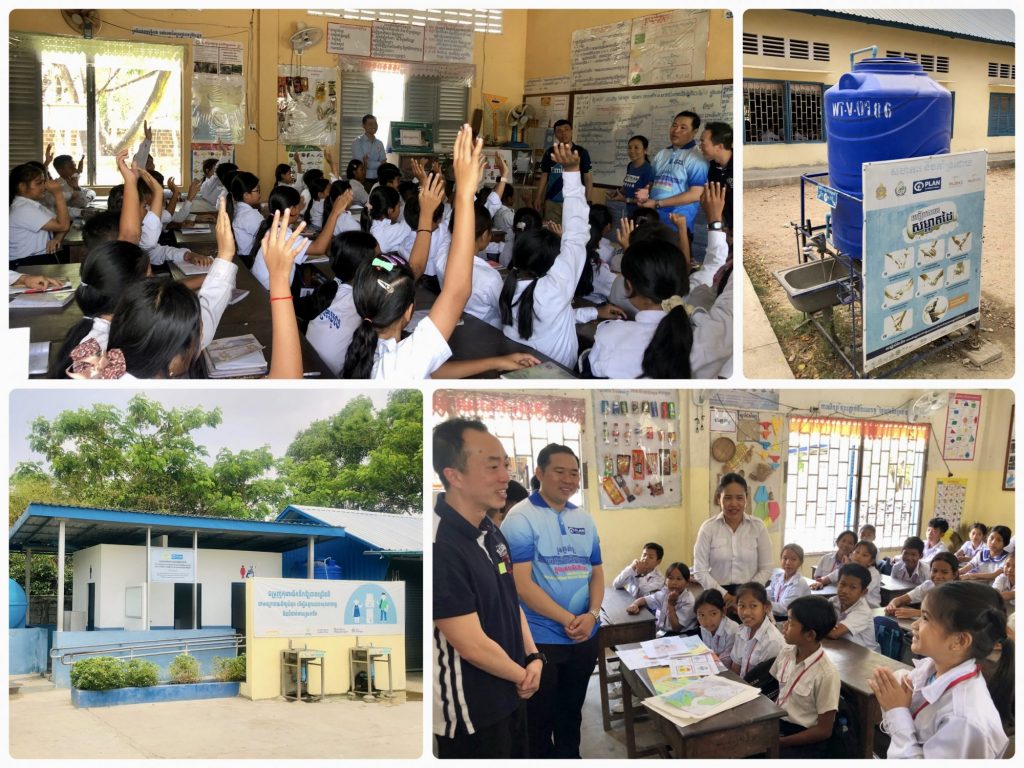
Back in the capital, Phnom Penh, we visited a primary school supported by Plan. Rural schools suffer from a lack of teachers, while this school in the capital faces issues of overcrowding as it serves students from nine local communities. With 2,100 students, the school is currently forced to accommodate 50 to 60 students per classroom and has to split sessions with classes held in the morning and afternoon.
This sponsor group visit was filled with enriching experiences, showcasing the profound impact that your generosity has on the lives of children, families, and communities in need. The stories are plentiful, and while we can’t capture each one in this message, we eagerly anticipate your participation in the next visit!
